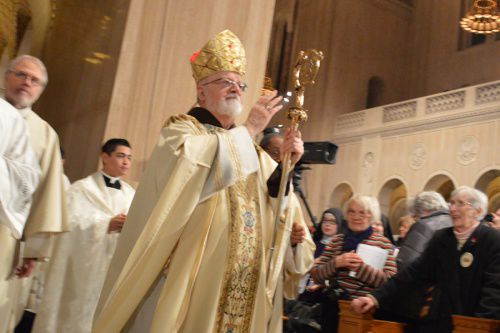While people might think of illness, disability age or inconvenience as something that detracts from human dignity, every life is “worth living,” says Cardinal Sean O'Malley, head of the U.S. bishops' pro-life committee. “An elderly man whose health is quickly deteriorating; an unborn baby girl whose diagnosis indicates she may not live long; a little boy with Down syndrome; a mother facing terminal cancer — each may have great difficulties and need our assistance, but each of their lives is worth living,” the Boston cardinal said in his statement for October as “Respect Life Month.” “We were made to love and be loved; we are meant to depend on one another, serving each other in humility and walking together in times of suffering,” he added. “Our relationships are meant to help us grow in perfect love.” October is “Respect Life Month” as observed by U.S. Catholics. It marks the beginning of a year-long program for Catholics to learn more about respect for the dignity of human life, as well as encouraging prayer for a greater respect for life. The theme for the 2015 Respect Life Month is “Every Life is Worth Living.” The U.S. Bishops’ Respect Life Program has provided reading materials for Catholics on topics like abortion and end-of-life care. Some of the articles included are titled “Supporting families who receive a prenatal diagnosis,” “10 ways to support her when she’s unexpectedly expecting,” and “Maggie’s story,” the personal testimony of a woman who attended to her terminally ill father. Many might judge a life based upon a person’s accomplishments or status, Cardinal O’Malley said, but to judge a life according to this standard would be a false judgment. Rather, the true worth of a life is found in the human dignity bestowed by God on each person. “So often, as a society and as individuals, we identify ourselves by what we do. We base our worth on how productive we are at work or at home, and we determine our lives to be more or less good depending on the degree of independence or pleasure,” he stated. However, God has created each person in His “image and likeness” and to spend eternity with Him in heaven, he added. We are all called to the challenge of caring for those suffering around us, he added. “This might mean slowing down and taking the time to listen. It might mean providing respite care or preparing meals for a family facing serious illness. It might mean simply being present and available. And of course, it always means prayer — bringing their needs before the Father and asking him to work in their lives,” he explained. Ultimately, we must rid ourselves of our notions that life can be perfected, he concluded. “Let us learn to let go of our own standards of perfection and instead learn more deeply how to live according to God’s standards,” he said. “He does not call us to perfect efficiency or material success; he calls us to self-sacrificial love.”

